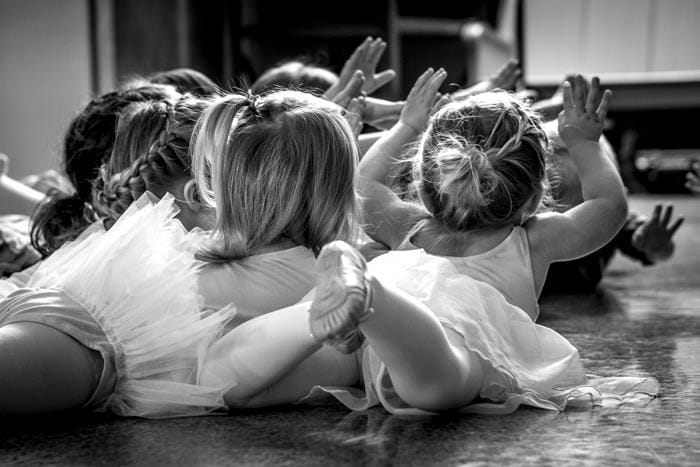
From the time that we started talking about having children, we planned to homeschool them for at least the early years.
That was over eight years ago: our oldest is five and we just officially kicked off her career in formal education. Meanwhile there have been many changes, revisions, and outright tossing altogether of parts of my philosophy of education since I wrote it as part of receiving my education degree.
One thing that has remained is that for our family schooling at home is what my husband and I feel is best for us. That’s not to say that we don’t see some of the challenges and we certainly plan to reevaluate regularly. It’s just that at this point we’re very confident that this is best for us, for our children. The first weeks of our very informal but learning filled kindergarten have been very successful and have gotten me really excited for the years to come!
I spent 10 out of my 12 elementary/secondary years being homeschooled so our children are actually second generation homeschoolers which I think is kind of neat. I also feel that it gives me a bit of a unique perspective on what it means to be educated at home with both the positive and negative sides to that.
One question (of many) that I have been asked my entire life in one form or another was, How did you have any friends? And then of course my favorite, the statement “That must have been so hard on you socially.”
Already, we’ve found that is a common concern from well-meaning friends, family and strangers alike. While at times it’s just slightly offensive, there are times when it is a legitimate concern.
Quite truthfully, there were times when I was lonely or wished that I had more friends that I saw regularly. On the other hand, I often was glad that I wasn’t part of the mad one minute, friends the next minute drama that seemed so common between school friends even during my last years of high school.
Looking back, I also feel that being homeschooled honed my ability to relate to, converse with, and enjoy the company of any age group. Knowing my personality as I do, I also think that by being homeschooled I learned slowly but well how to choose my friends based on qualities besides popularity (when I definitely saw that my tendency was to lean in that direction).
Something that is quite different for our children in their homeschooling experience is that I grew up in a remote location or as my brother insists on saying “out in the sticks”, whereas we live right within a small community where the elementary school is just a short bus ride away.
I often wonder how that is going to affect our choice to homeschool. I really do worry about it at times. Even though I know that our choice to homeschool isn’t a statement about the local school it isn’t easy to make that clear to others. Being at home does separate our girls from the other children in some ways; there is no way to avoid that.
Truthfully, I’m not actually worried about the girls not seeing friends on a daily basis, I don’t think that they need that in order to develop into well-rounded, socially-able people. At the same time, community is something that we value and is something that we have been grateful for since moving here. We really don’t want to lose that simply because our children don’t attend school. We just want to structure their education, learning, and social development in a different way while still engaging in our community. I don’t claim to be an expert by any means but I’d like to offer a few ideas that we have found to work well for us thus far.
1. Take part in organized sports
This is a common one that we already enjoy. We aren’t really a family that is constantly involved in multiple organized events and sports but we have found that summer soccer, swimming lessons or fall ballet has been a good opportunity for the girls to spend time with a group of kids regularly.

2. Attend community events
I try to keep track of any events that are intended for children or that are kid-friendly. We tend to more often end up at events that are arts and music centered but we’ve also enjoyed community meals, games nights, and even a community apple cider pressing afternoon.
3. Be the host
We really enjoy having people in our home – whether it’s for a harvest party or a simple birthday supper. Sometimes it’s hard to just invite people over for coffee or a meal but its so worth it for both our own friendships and also for the girls. I’m learning that it doesn’t have to be fancy and my house doesn’t need to be spotless; most people are warmed by a sincere and welcoming heart that doesn’t stress too much over how everything looks .

4. Take part in school events
That might seem strange and may only be applicable to smaller communities but I think that it makes a big difference to show that you really do support the local school. Maybe that happens by attending a school event, buying some flowers from a graduating student, or making a plate of cookies for the bake sale. Whatever it is, I feel that it can go a long ways to breaking down the us versus them walls for you, your kids, and others.
5. Be friendly, be open, be confident
I know from experience that as homeschoolers it can be easy to be on the defensive, looking for an attack at every turn. I’m still working on peeling my defensive layers off from my own homeschooling days. It can be really tempting to find the homeschooling group and build your kids’ (even your own) friendships only there.
Perhaps that works at times but for us, that would take us out of our community and that isn’t what we want. While still maintaining the privacy and rights of our family, we’re committed to answering questions (with grace) when possible and living confidently in a way that shows our desire to live in community even though we’ve chosen to educate our children differently.
6. Accept that as a homeschooled family, community and friendship will look different
There are aspects of school life that homeschooled children really aren’t able to take part in. They aren’t playing with the same kids each day, they won’t be invited to all the birthday parties, and their friends won’t likely all be the same age as them. That can be viewed as them “missing out” or it can be taken as an opportunity for them to experience something different yet every bit as meaningful and arguably even more positive.
***




















Stephie N
We have plans to homeschool and have been asked constantly if we homeschool even though my babies are a couple years from school age, just because they are smart and clear concise toddlers. My biggest problem is getting involved, we are having a really hard time bonding with anyone and I wonder how much is us and how much is the fact that we live in a huge city where it seems like everything is fake and friends are mostly just trying to ‘keep up with or be a few steps ahead of the Jones’ what kind of steps would you suggest taking towards community when we a adults can’t seem to find it either? Aside from people bring very shallow one of our biggest problems is the kids around us being terrible influences on our kids, when we are around others because our kids are so young they pick up on the other kids behaviors and repeat them sometimes for days even though they aren’t getting away with them, for example my niece (who is four, and not really disciplined) said a curse word in front of my oldest and she repeated it for almost a week. How do you deal with these things in your girls?
Marissa
Those are some challenging thing to deal with, Stephie. There are times when I would choose to limit how much time is spent with that child/person but usually I see my influence as being greater at this point. In the really little years I actually never even address the behaviour or words that have been picked up because I think generally they are just trying some new, not intending to do wrong. Instead I try to be intentional about showing them and helping them learn positive words and actions. Especially with words, I feel that a reaction from me simply makes them want to use the words more so if I ask them not to say it I do it very matter of fact. Now that my girls are five and close to four, I ask them what they think a word means and since they at this point never know, I either explain what it means/expresses or how it is meant to make others feel. We talk a lot about the power of our words so they really get that and I think addressing it in a matter of fact way takes the fun and mystery out of the words.
It hasn’t happened much but in situations where they are being negatively influenced, I will at times join in the play in such a way that I can be part of directing how the play and even conversation goes.
Finally, I know from experience how terribly lonely it can be to feel nothing in common with others. I’m sorry that I don’t have any great advice to share other than that I have come to realize that there are actually very few truly shallow people. Rather, we all just need to know that another genuinely cares about us and the “insignificant” details of our life before we are willing to go beyond the surface. I have found that as I choose to be more vulnerable and open myself while learning to care about and be interested in who people are, I have formed more meaningful friendships of various levels.
I better stop before I write a whole other blog post! Thanks for commenting and I truly hope that you will find friendships for both you and your children that give you joy and encouragement!
Alena@TheHomemadeCreative
My daughter is almost 17 months old, so we’re still a bit far from school, but yes, we plan to homeschool. I was home schooled, and it was a mixed bag (long story). I’m learning from my mom’s strengths and her weaknesses, though, and think that Nick and I will do well, especially since we have a strong community built up around us already.
Marissa
That’s great that you have a strong community already before you begin homeschooling. I find myself very much in the same place of learning from how I was homeschooled; taking the strengths and trying to go about the weak spots in a different way. All the best to you and thank you for your comment!